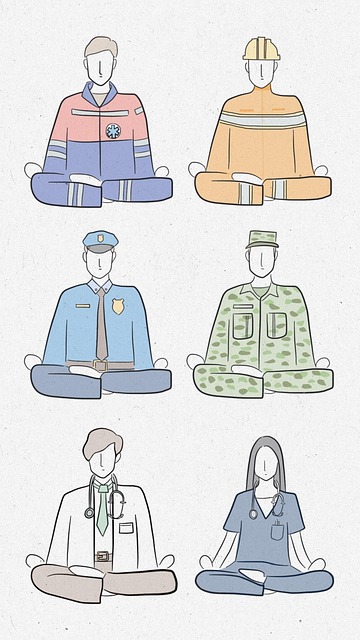Westminster Russian Speaking Therapy (WRST) tackles mental health stigma by empowering communities through media analysis and empathy-building education. They challenge stereotypes perpetuated in media portrayals, offering specialized services and training for diverse Russian-speaking populations while fostering understanding and reducing misconceptions about therapy. WRST promotes authentic representation, involving individuals with lived experiences to normalize conversations around mental wellness, encouraging support-seeking behaviors.
Mental illness representation in media significantly influences public perception and understanding of mental health. This article explores the profound impact of media portrayals on how society views psychological conditions, with a particular focus on challenging stereotypes. We present the innovative work of Westminster Russian Speaking Therapy, highlighting its role in promoting accurate and empathetic depictions. Furthermore, practical strategies are discussed to ensure media representations enhance support and reduce stigma for individuals living with mental illness.
- Understanding the Impact of Media Portrayals on Mental Health Perception
- The Role of Westminster Russian Speaking Therapy in Challenging Stereotypes
- Strategies for More Accurate and Helpful Media Depictions of Mental Illness
Understanding the Impact of Media Portrayals on Mental Health Perception

The media plays a powerful role in shaping societal perceptions about mental health. Portrayals of individuals with mental illnesses in films, television shows, and news coverage can significantly influence how the general public understands and responds to these conditions. Unfortunately, traditional media often perpetuates stereotypes, offering one-dimensional characters suffering from unseen, unintelligible disorders. This misrepresents the complexity of mental health issues, leading to further stigmatization and misconceptions. For example, a character with depression might be depicted as lazy or weak, failing to convey the real struggles and potential treatments available.
At Westminster Russian Speaking Therapy, we recognize that media has the power to either promote harmful narratives or foster understanding and empathy. By designing Mental Health Education Programs that include media analysis, we can empower individuals to critically evaluate portrayals and gain insights into Depression Prevention strategies. Moreover, these programs can incorporate Empathy Building Strategies, encouraging viewers to consider different perspectives and challenge their preconceived notions. Through this approach, we aim to create a more informed and compassionate society, where mental health discussions are nuanced and supported by factual representations in the media.
The Role of Westminster Russian Speaking Therapy in Challenging Stereotypes

Westminster Russian Speaking Therapy (WRST) plays a pivotal role in challenging stereotypes surrounding mental illness within the diverse Russian-speaking community. As a unique and specialized service, WRST offers a safe space for individuals to access therapy and support tailored to their cultural background and language preferences. By providing mental health services that are culturally sensitive and accessible, WRST aims to bridge the gap between communities and healthcare systems.
Through its Community Outreach Program Implementation, WRST reaches out to local Russian-speaking populations, educating them about available resources and dispelling common misconceptions about seeking therapy. The organization also prioritizes Mental Illness Stigma Reduction Efforts, fostering an environment of understanding and empathy. Moreover, WRST ensures that its therapists undergo rigorous training in risk assessment for mental health professionals, enabling them to handle diverse cases effectively while maintaining ethical standards.
Strategies for More Accurate and Helpful Media Depictions of Mental Illness

Media has a significant impact on shaping public perception about mental health issues. To foster understanding and reduce stigma, accurate and sensitive portrayals of mental illness in movies, TV shows, and news are crucial. At Westminster Russian Speaking Therapy, we advocate for authentic representations that reflect the diverse experiences of individuals with mental health challenges.
One effective strategy is to involve people with lived experiences as consultants or actors, ensuring a more genuine portrayal. This approach allows for accurate communication strategies, promotes empathy, and encourages viewers to seek support if needed. Additionally, showcasing characters practicing self-care practices and seeking professional help can normalize conversations around mental wellness, offering hope and guidance to those struggling with anxiety relief.
Media representations of mental illness play a pivotal role in shaping public perception, often influencing how society understands and responds to these health issues. By highlighting the positive impact of initiatives like Westminster Russian Speaking Therapy, which actively challenge stereotypes, we can foster more accurate depictions in media. Implementing the suggested strategies for responsible media coverage is essential to promoting empathy, reducing stigma, and ensuring individuals with mental health challenges receive the support they need. Together, these efforts can revolutionize how mental illness is portrayed, leading to a healthier and more supportive societal narrative.













